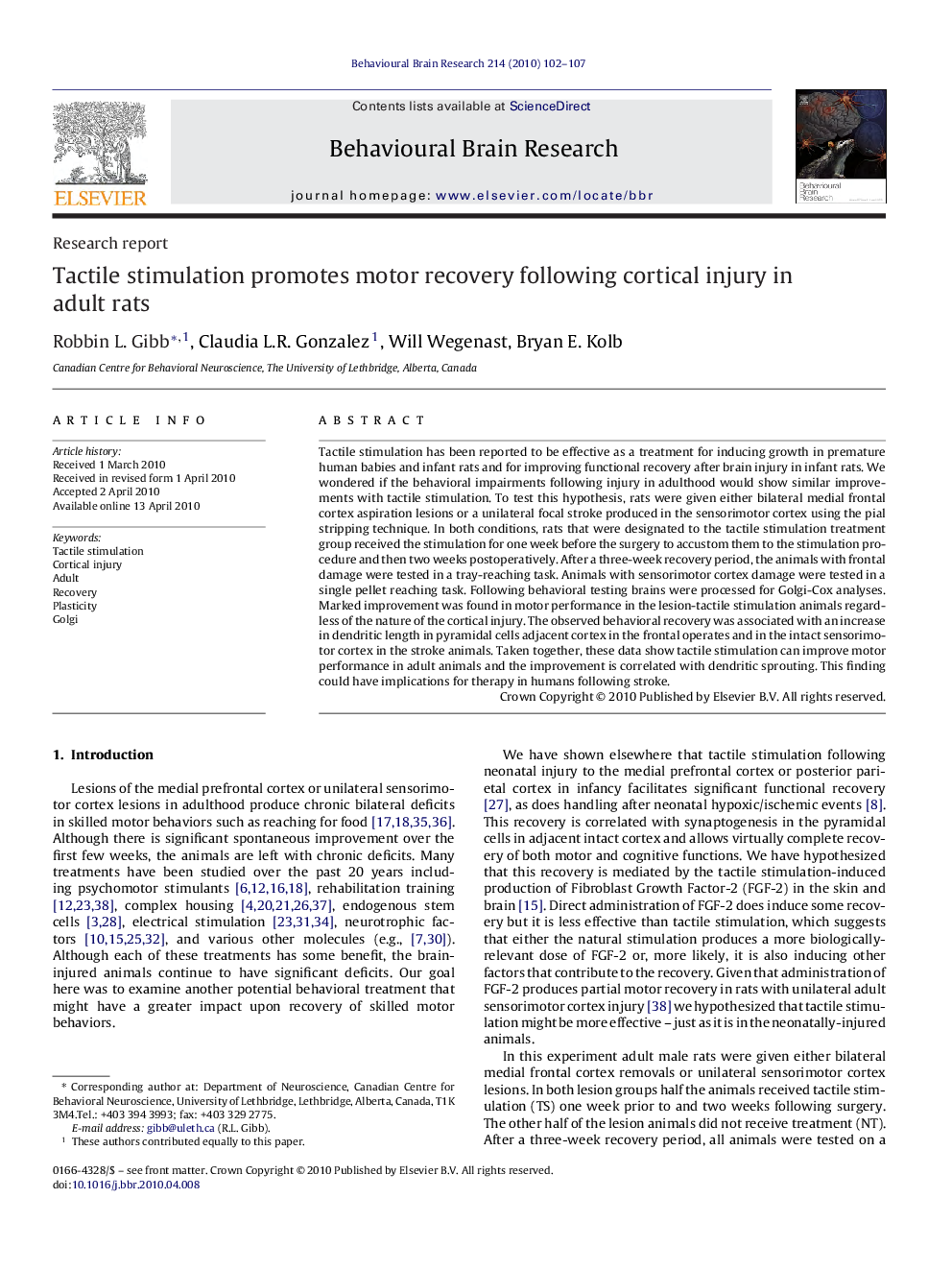| Article ID | Journal | Published Year | Pages | File Type |
|---|---|---|---|---|
| 4314173 | Behavioural Brain Research | 2010 | 6 Pages |
Tactile stimulation has been reported to be effective as a treatment for inducing growth in premature human babies and infant rats and for improving functional recovery after brain injury in infant rats. We wondered if the behavioral impairments following injury in adulthood would show similar improvements with tactile stimulation. To test this hypothesis, rats were given either bilateral medial frontal cortex aspiration lesions or a unilateral focal stroke produced in the sensorimotor cortex using the pial stripping technique. In both conditions, rats that were designated to the tactile stimulation treatment group received the stimulation for one week before the surgery to accustom them to the stimulation procedure and then two weeks postoperatively. After a three-week recovery period, the animals with frontal damage were tested in a tray-reaching task. Animals with sensorimotor cortex damage were tested in a single pellet reaching task. Following behavioral testing brains were processed for Golgi-Cox analyses. Marked improvement was found in motor performance in the lesion-tactile stimulation animals regardless of the nature of the cortical injury. The observed behavioral recovery was associated with an increase in dendritic length in pyramidal cells adjacent cortex in the frontal operates and in the intact sensorimotor cortex in the stroke animals. Taken together, these data show tactile stimulation can improve motor performance in adult animals and the improvement is correlated with dendritic sprouting. This finding could have implications for therapy in humans following stroke.
